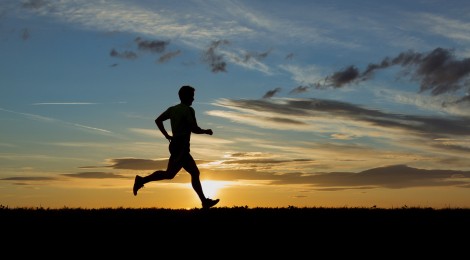
Running to Bed
After the great night’s of sleep experienced in the great outdoors that I mentioned in the last week’s post, I thought I’d do brief bit of further research on getting some quality sleep something that eludes many of us, particularly here in the US.
It’s no secret that insomnia and sleep deprivation are common challenges in the US. According to a 2006 study by the Institute of Medicine, an estimated 50-70 million US adults have a sleep or wakefulness disorder. Chronic diseases like diabetes, depression, hypertension, obesity and even cancer have all been related to sleep deficiencies. Sleep insufficiency has been tied to motor vehicle accidents, occupational errors, reductions in productivity and more.
An 8-month review of anonymized data conducted by Withins of over 9,000 users of the Withings Pulse activity tracker (a device which measures physical activity as well as sleep) showed the bi-directional relationship between sleep and exercise. People who where physically active during the day were more tired and went to bed an average 36 minutes earlier and their sleep averaged 14 minutes longer on the days they exercised.
Further, the data review showed that the deep sleep cycles, the part of the non-REM sleep where your brain waves are at their slowest, blood travels to your muscles to restore your physical energy and the cell reparation for your brain and muscles is performed, lasted nearly 10% longer for those physically active during the day.
Finally, those who were physically active woke up less times (at 13% decrease!) during the night.
Activity Frequency vs Volume
The data also shows how regular physical activity trumps single, longer-duration exercise. Sport playing and/or running three times a week for 30-minutes each produced better sleep quality than a single 90-minute bout of physical exercise over the same time period.
Time of Day
I’ve found the following to be very true myself in my years of exercising: morning (my personal favorite) or afternoon exercising creates a better night’s sleep than working out in the evening. The adrenaline level increase following physical activity can have an adverse effect on sleep when the exercise is performed in the evenings, something to keep, in mind if you need to wake up early the next day. I know for myself, once I create a regular routine of exercise in the mornings that I wake up more easily and energized.
Bi-directional relationship
Less sleep was found to impact performance (and likely even the motivation) of physical activity as well. So when it comes to sleep and physical activity, “one hand washes the other” as the saying goes. So if you really would like to improve your sleep, get active!
How do you find physical activity (or lack thereof) impacts your sleep?
"Running to Bed",